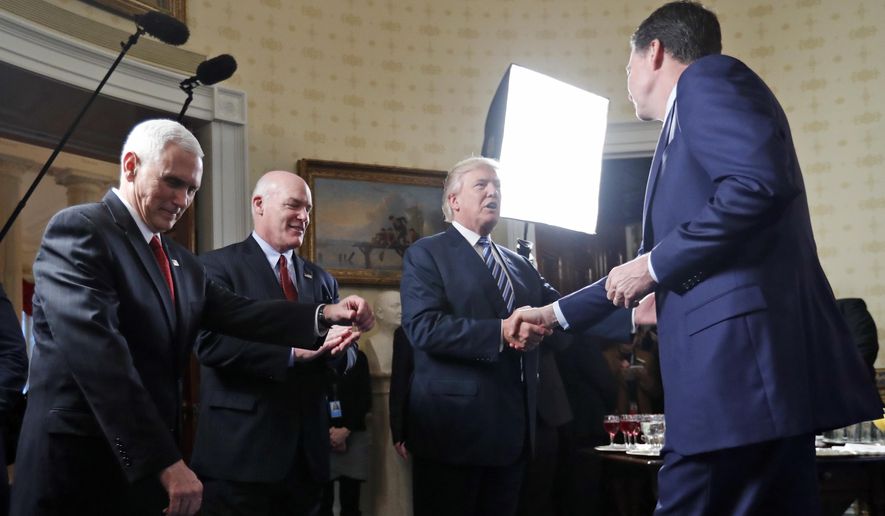President Trump has authorized U.S. Attorney John Durham to present classified information to a grand jury as part of his investigation into the FBI’s Russia collusion probe, an unusual power that would help him make a stronger case if he pursues indictments.
Justice Department rules ban presenting classified information to grand jurors who don’t have a security clearance unless it receives approval from the intelligence agency responsible for classifying the information.
In a memo signed Friday but not made public until this week, Mr. Trump conferred the power to access classified information to Attorney General William P. Barr, which transfers that power by extension to Mr. Durham.
“The attorney general is authorized to use classified information as he deems necessary in connection with his review, including grand jury or other proceeding,” Mr. Trump wrote.
The order grants Mr. Durham greater freedom to use that material if he convenes a grand jury. It is not clear if Mr. Durham is close to or has already convened a grand jury.
Andrew Leipold, a former member of independent counsel Kenneth W. Starr’s team that investigated President Bill Clinton, said the move was unusual. But he also questioned whether it would have any impact if a grand jury doesn’t return an indictment.
“If nothing ever comes out of the grand jury room, then we now have some unappealing norm-breaking that has now exposed 23 grand jury members to classified information,” he said.
Under federal law, the Justice Department can brief intelligence agencies on which classified information it intends to use in a grand jury proceeding but does not need to ask for its permission.
The order supplements a May 2019 order from Mr. Trump authorizing the attorney general to unilaterally declassify documents and ordering the CIA and other intelligence agencies to cooperate with Mr. Durham’s probe.
In October, Mr. Barr promoted Mr. Durham to special counsel in addition to his duties as the U.S. attorney for Connecticut, protecting his work into the Biden administration.
The president and his allies had high hopes that the Durham investigation would uncover widespread corruption by Obama-era officials, but repeated delays because of the deadly coronavirus pandemic and bureaucratic problems pushed the investigation into 2021.
Mr. Durham has netted one guilty plea so far. Kevin Clinesmith, a former FBI lawyer, pleaded guilty to falsifying a document to justify the bureau’s surveillance of Trump campaign official Carter Page.
Conservative critics have questioned the Durham probe, saying they haven’t seen any evidence the investigation is moving forward. Democrats, meanwhile, have fumed that the probe is a politically motivated effort to smear Mr. Trump’s political enemies.
Mr. Barr, who stepped down Wednesday, defended Mr. Durham this week.
“I designated John Durham as a special counsel because I wanted to provide him and his team with assurance that they’d be able to finish their work, and they’re making good progress now, and I expect they will be able to finish their work,” Mr. Barr told reporters. “I’m hoping that the next administration handles that matter responsibly.”
When asked if Mr. Durham had concluded that the Trump-Russia investigation was not properly predicated on Monday, Mr. Barr said, “I’m not going to try to characterize what his conclusions are.”
Yet Mr. Barr also appears to be tempering expectations from those who hoped the probe would uncover significant wrongdoing.
Mr. Barr recently told The Wall Street Journal that he didn’t see any sign of “improper CIA activity,” concluding the agency “stayed in its lane.”
President-elect Joseph R. Biden has not said if he would allow Mr. Durham to finish his investigation. Though elevating Mr. Durham to special counsel makes him more difficult to fire, he still would serve at the pleasure of the president and attorney general.
Mr. Biden has repeatedly pledged that he would not interfere with his Justice Department’s decisions, allowing prosecutors to make their own calls on how to proceed.
• Jeff Mordock can be reached at jmordock@washingtontimes.com.




Please read our comment policy before commenting.